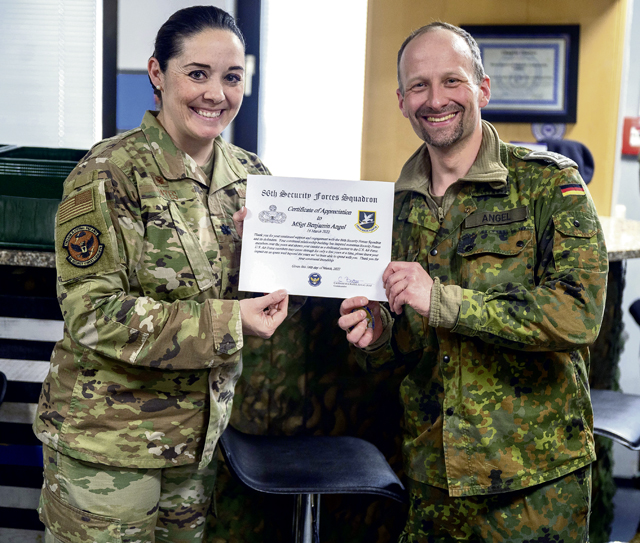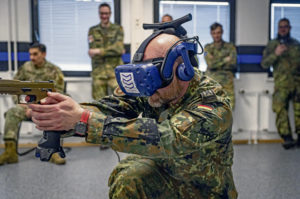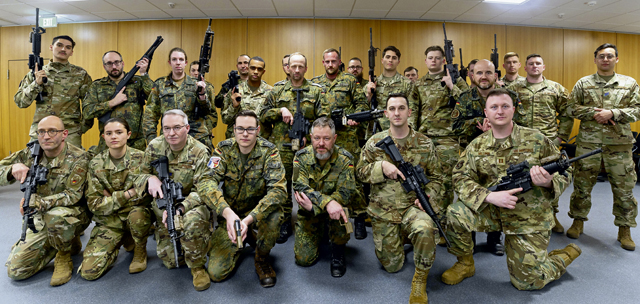
U.S. Air Force Airmen from the 86th Security Forces Squadron partnered with their German Bundeswehr counterparts from NATO Headquarters Allied Air Command to conduct a series of exercises at Ramstein Air Base and Kapaun Air Station, March 15-16.
Frequent training exercises are critical to ensure NATO forces remain fully prepared, and allow for allied force development and strengthened alliance. This series of exercises not only focused on readiness, it also aimed to strengthen rapport amongst Defenders within the Kaiserslautern Military Community.
Throughout these exercises, German air force airmen trained on multiple weapon systems, utilizing state of the art virtual reality gear and simulators, and became certified on vehicles. They were put through multiple simulated scenarios that Airmen from the 86 SFS may encounter throughout their day.
“The Street Smart Virtual Reality simulation plays out different situations security forces may encounter,” said Tech Sgt. Zachary Willard, 86 SFS armory noncommissioned officer in charge. “This includes anything from de-escalating situations to defining threats and using the necessary level of force.”
Additionally, German airmen utilized the Meggit 300-degree room. The facility is a room with screens in the shape of a circle meant to simulate a real world scenario. This is used by Airmen to help improve aim without having to travel to the firing range.
“Using the simulator means we can spend more time critically analyzing how members are performing with the weapon,” Willard said. “With the 300-degree target range, we are able to monitor every detail from the sway of the weapon, to movements that are made when the trigger is squeezed. Having high-resolution marksmanship data means we can correct mistakes in-office, and when they go to shoot on the range our Defender’s time is more effectively spent.”

While half the German airmen were in the simulators improving their weapons familiarity, the other half were getting qualified on military RZR tactical vehicles. This not only became a way for the Bundeswehr members to become more familiar with U.S. equipment, but also a way for them to bond with USAF Airmen and increase interoperability.
The second day of training exercises took place on Kapaun Air Station, where participants put their new knowledge to the test and shot an M4A1 carbine and M18 pistol with the goal of achieving expert marksmanship.
“This event builds camaraderie between U.S. and host nation forces,” Willard said. “In the event that we are in a position to work together as NATO allies, we will be better prepared for the mission at hand.”
To close out the exercise and partnership events, the German airmen enjoyed a final meal where they were awarded certificates of weapons competency.
“You have a highly motivated team, and I see a lot of professionalism,” said German air force Master Sgt. Benjamin Angel, NATO HQ AIRCOM training noncommissioned officer in charge. “I’m happy to have had two amazing days filled with lots of smiles and learning.”
The exercise ended with Lt. Col. Cassandra Bates, 86 SFS commander, presenting Angel with a letter of appreciation, thanking him and his personnel for their dedication to building partnerships.
86 SFS is taking proactive steps to put the 86 AW’s mission, Build Airmen, Project Power, and Support Partners, into action. The exercise signaled a renewed commitment to building positive partnerships amongst defenders in the KMC.



